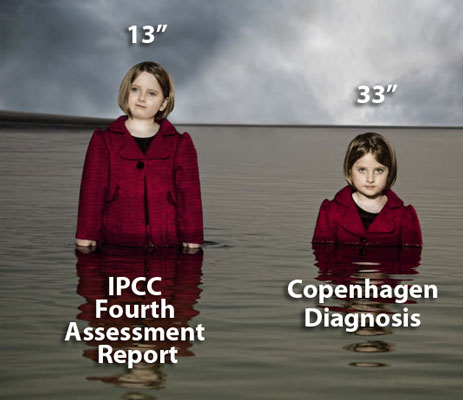Working in a coalition of roughly 500 organizations from nearly 80 countries can be tough. With so many different points of view and unique perspectives and expertise, coming to agreement on something as complex as solving climate change can be difficult to say the least. But then again, isn’t that what we’re asking over 180 countries to do next month in Copenhagen?
Well, I’m happy to say that at least as far as the Climate Action Network – International (CAN) is concerned, we’ve done our job and it’s in the form of CAN’s “Fair, Ambitious & Binding: Essentials for a Successful Climate Deal.” In this document just released today ahead of the upcoming climate talks in Copenhagen, we, as the world’s largest network of organizations fighting for solutions to the climate crisis, share our collective views on the key elements of a successful climate agreement. Now it’s up to the leaders around the world to do their part in Copenhagen.
This vision has not come easily, but in the effort it has taken comes its strength. We have brought together within CAN some of the most dedicated and expert analysts and advocates in world to come together around the key essentials for a successful outcome from the United Nations climate negotiations. While some specifics may still be debated by even our own members in CAN, this document serves as the collective voice of what is needed from our leaders in Copenhagen and beyond. And it’s a powerful vision coming from hundreds of experts around the globe.
The thing that’s amazing is that-while we’ve been as ambitious as we believe is necessary to address this challenge and as true to the science as we possibly can be — we know that what we’ve laid out is achievable.
Some highlights of what we’re calling for include:
- A commitment to keep warming well below 2°C, with emission peaking between 2013 and 2017, and concentrations lowering to 350ppm CO2e.
- Industrialized countries as a group must take a target of more than 40% below 1990 levels by 2020. Most of which should be met through domestic emissions reductions.
- Developing countries must be supported in their efforts to limit the growth of their industrial emissions, making substantial reductions below business-as-usual. The support for their efforts to adapt to the adverse effects of climate change must also be scaled-up immediately and substantially, and the fact that certain loss and damage from climate change can not be avoided must be recognized.
- Emissions from deforestation and degradation must be reduced to zero by 2020, funded by at least US$35 billion per year from developed countries.
- Developed countries need to provide at least US$195 billion in public financing per year by 2020, in addition to ODA commitments, for developing country actions.
- Copenhagen outcomes must be legally binding and enforceable: a second commitment period of the Kyoto Protocol; and a complementary agreement with comparable action and enforcement for the United States, and action from developing countries.
When leaders come to Copenhagen next month, CAN’s “FAB Essentials” will be our yardstick for measuring our leaders’ success in their steps along the path towards climate stabilization and a sustainable world. We know that what we’ve put forward is ambitious, but what’s more important is that the elements found within CAN’s FAB Essentials are both essential and achievable.
For more information on the Climate Action Network and “Fair, Ambitious & Binding: Essentials for a Successful Climate Deal,” please visit our website. An official press release can also be found here. And finally, as the conference in December moves along, be sure to stay tuned at our blog for updates on how the nations of the world are doing in meeting the FAB Essentials.



